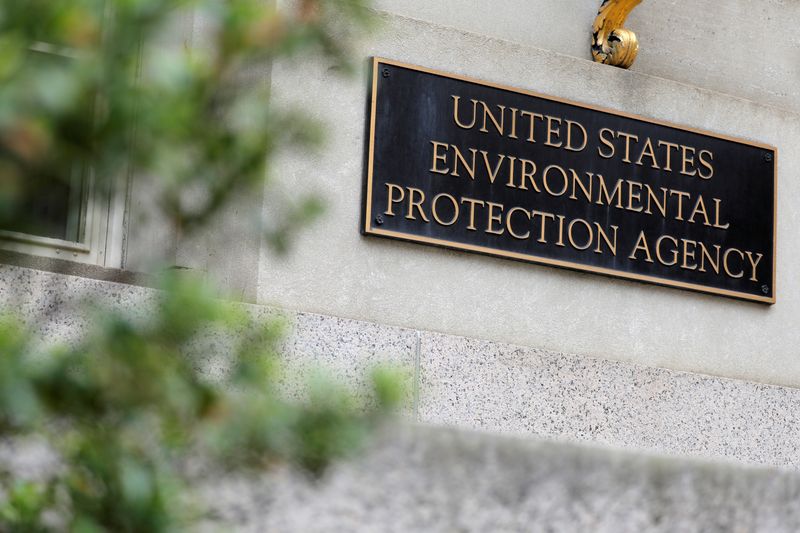
[ad_1]

© Reuters. FILE PHOTO: Signage is seen at the headquarters of the United States Environmental Protection Agency (EPA) in Washington, D.C., U.S., May 10, 2021. REUTERS/Andrew Kelly
By Valerie Volcovici
WASHINGTON (Reuters) – The U.S. Environmental Protection Agency on Saturday launched a new office that will be focused on the needs of minority communities overburdened by pollution and oversee the delivery of $3 billion in environmental justice grants created by the recent passage of new climate legislation.
EPA Administrator Michael Regan announced the creation of the Office of Environmental Justice and External Civil Rights, which will be staffed by 200 EPA employees and led by a not-yet announced Senate-confirmed assistant administrator.
He launched the new office at an event in Warren County, North Carolina, which was the site of protests 40 years ago that is regarded as the birthplace of the environmental justice movement.
“With the launch of a new national program office, we are embedding environmental justice and civil rights into the DNA of EPA and ensuring that people who’ve struggled to have their concerns addressed see action to solve the problems they’ve been facing for generations,” Regan said in a statement.
It was the latest move by the Biden administration to prioritize environmental justice in its policymaking. The Justice Department in May announced the launch of a new office to help low-income areas and communities of color battle the disproportionate impact of air and water pollution.
President Joe Biden has often cited protecting poor and minority communities from industrial pollution as a top priority and has pledged that 40% of federal clean energy investments will be channeled to the cause.
The Inflation Reduction Act signed by Biden last month created a $3 billion climate and environmental justice block grant program that the new office will oversee. Overall, the legislation will unleash a $60 billion investment in environmental justice across the government.
The office will engage with and give technical assistance to communities to ensure they can access grants; enforce federal civil rights laws and provide help with environmental conflict resolution.
[ad_2]